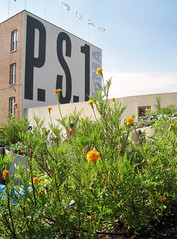 This guy is in Iraq because we use 25% of the world's daily oil consumption rather than building transit systems and providing options for people that don't involve driving. A third auto bridge in Salem would be a monument to our failure to recognize the end of the carburban way of life and our willingness to let others die overseas so that we can keep right on driving multi-thousand pound vehicles for our every trip here at home. Image via Wikipedia
This guy is in Iraq because we use 25% of the world's daily oil consumption rather than building transit systems and providing options for people that don't involve driving. A third auto bridge in Salem would be a monument to our failure to recognize the end of the carburban way of life and our willingness to let others die overseas so that we can keep right on driving multi-thousand pound vehicles for our every trip here at home. Image via Wikipedia
Here in Salem, the group organized to push through a $600+ million bridge project was finally shamed into remembering that they were not supposed to be locked into planning a bridge as order of business one and only.
Naturally, they have only grudgingly begin to begin thinking about pondering alternatives to more autosprawl (meanwhile, busily beavering away on their dream plan, involving hundreds of millions of dollars, massive construction, etc.), while totally ignoring the spate of recent reports that suggest that our precarious climate is destabilizing faster than even the most pessimistic scientists imagined it would five years ago.
Funny, the "alternate modes" study --- (you'd think that the cheapest ways of solving the problem would be the MAIN line of attack, rather than the grudging afterthought only tossed in because they feared a challenge to the validity of their environmental impact statement) --- has been going since April, but they're just now getting around to alerting the public.
As always, there will only be two modes responses for all public concerns about this boondoggle of a project:
"It's too soon to say" and
"It's too late to stop now."
DEIS Update and Alternate Modes Study
The Salem River Crossing project team is busy working on the Draft Environmental Impact Statement (DEIS). Soon we will begin sending email updates describing the document's progress and how you can get involved once the draft is complete.
In the mean time, we'd like to tell you about an important study being conducted in parallel with the DEIS, called the Salem Willamette River Crossing Alternate Modes study. This study, begun in April, will identify needs and opportunities for improving transit service across the river in Salem. It will also cover related needs and opportunities for carpool/vanpool users, bicyclists, and pedestrians. This study will help assure that any improvements identified will be coordinated with the Salem River Crossing project, as needed.
The first Stakeholder Advisory Committee (SAC) meeting for the study will be held on Monday, June 22nd from 4:00-6:00 pm at the Mid-Willamette Valley Council of Governments office (105 High St. SE, Salem). At this meeting, the Alternate Modes study team will provide an overview of the study, discuss the current system, and outline potential improvements that will be considered. This meeting is open to the public and will include a brief period for public comments.

![Reblog this post [with Zemanta]](http://img.zemanta.com/reblog_e.png?x-id=d5a81366-1a91-4fb0-8319-37388b499af4)

![Reblog this post [with Zemanta]](http://img.zemanta.com/reblog_e.png?x-id=5c70fd70-97bb-48c9-a08b-4c976f92f0b9)

![Reblog this post [with Zemanta]](http://img.zemanta.com/reblog_e.png?x-id=5108775f-bb9d-4139-8c57-3159478e6315)



